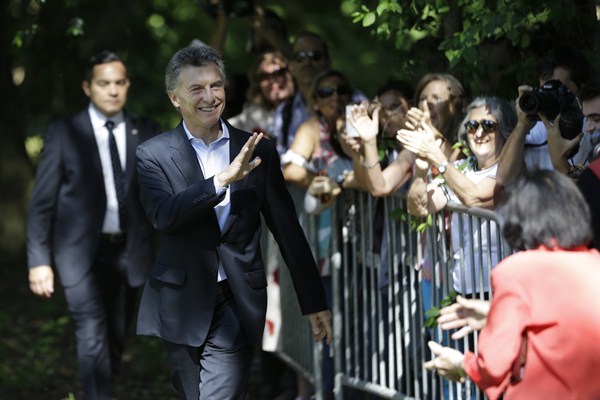When Venezuela’s charismatic revolutionary, the late Hugo Chavez, won the presidential election in his country for the first time in 1998, he launched a new political era in Latin America. For the next 17 years, leftist politicians—many of them emerging from humble beginnings, as Chavez had—rose to power through democratic means in a region where that path had seldom been successful for the left or the poor. Chavez’s model of modified socialist economics and modified democratic governance soon spread to a number of countries and became the dominant political phenomenon of the 21st century in Latin America.
That period of leftward momentum and the broader trend of modern Latin American socialism—a hybrid of market economics, redistributive socialism, populism and democracy with authoritarian tendencies—is now entering its final chapter.
The stunning victory of the center-right’s Mauricio Macri in Argentina’s presidential election earlier this month marked the beginning of the new rightward turn. But while the pendulum has now started swinging toward the right, it will not be a smooth transition. The region’s left is now largely on the defensive, but the months ahead will bring acrimonious battles as the two sides struggle for power.

